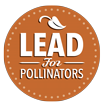How Commercial Beekeepers Keep Healthy Hives without Exclusive Use of Off-label Varroa Treatments
by the Honey Bee Health Coalition
Commercial beekeepers are finding success treating Varroa, a parasitic mite that kills honey bees, in their hives without relying exclusively on off-label chemical treatments, according to a new guide published this week by the Honey Bee Health Coalition. The guide is pivotal to the industry as Varroa mites are already showing signs of widespread resistance to existing varroacides.
“We set off to create a hands-on guide that covers what you might learn when talking to a commercial beekeeper in the hallway of a bee convention,” said Chris Hiatt, vice president of the American Honey Producers Association. “We stress the importance of not relying on one single product for your mite control. Commercial beekeepers helped develop this for commercial beekeepers and the info in this guide can put to use into beekeeping operations now.”
Titled Guide to Varroa Mite Controls for Commercial Beekeeping Operations, it lays out a vision that addresses the risks of resistance created by off-label use. Widespread resistance to amitraz poses a serious threat to the long-term financial health of every commercial beekeeping business.
Continuous use of off-label amitraz, with increasing dosages and frequency of use as it becomes less effective, is very likely to cause amitraz to lose its effectiveness more quickly, just as other products like coumaphos and tau-fluvalinate have become largely ineffective for controlling Varroa mites.
The guide aims to help commercial beekeepers evaluate a variety of Varroa control methods that can be integrated into a management plan to protect their bees and their business. It highlights the experiences of beekeepers who are having success as they explore alternative strategies to limit their reliance on off-label amitraz and avoid using unregistered products.
Download the guide at this link
